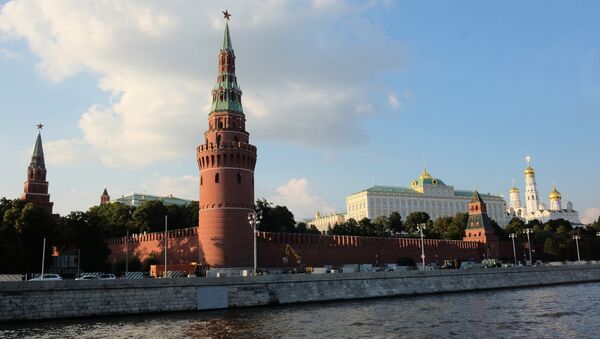Europeans are tired of "the whole anti-Russia hysteria" and pro-war rhetoric, George Szamuely, Senior Fellow at the Global Policy Institute of London Metropolitan University said.
"One of the most amazing numbers was the 85% of [those polled] who want an improvement of relations with Russia," the analyst noted. "So, you really get the sense of disjunction between public opinion and what the political elites are saying."
Answering the question of whether the consequences of anti-Russian sanctions have somehow contributed to this particular tendency, the analyst said:
"A lot of European farmers were hit badly by this. Russia's cancellation of the South Stream natural gas project was very damaging to Europe. Well, these sanctions are directly hitting Europeans' pockets. Why are we hurting ourselves? What's the big issue that we have to be so anxious about? This whole phoney-baloney story about all that interfering into domestic affairs, interfering in elections: no one is buying that story."
READ MORE: Moscow-Brussels 'Artificial' Conflict 'Purely Political,' Analyst Says
Szamuely recalled that US President Donald Trump first tried to talk about the necessity to stop conflict with Russia and develop fruitful partnership between the two countries, but "political and military elites in Europe and America went crazy and tried to basically destroy him."
According to the analyst, the West has to give up its understanding of Russia as an enemy. Otherwise, the development of relations between Moscow, on the hand, and Brussels and Washington, on the other, won't be in sight for a long time to come.
In Szamuely's opinion, the basic security problems that the West is facing nowadays have "absolutely nothing to do with Russia."
"Jihadism, terrorism, massive refugee flows — these are the problems. And in these problems, Russia and the West are on the same side. Why are we[then] sending troops into the Baltic States and holding these endless military exercises on Russia's borders?" the analyst wondered.
"They [European leaders] have to actually abandon the phantasy world that they have created: that Russia is a terrifying force […] This is a complete phantasy world, it has nothing to do with the issue of terrorism, nuclear proliferation, issue ‘Islamism' [and] the massive uncontrolled migration flows," Szamuely concluded.
A recent survey conducted by the French Institute of Public Opinion (Ifop) has shown that the vast majority of respondents favored an improvement in relations between Brussels and Moscow, with 87 percent of Germans, 85 percent of Poles, 79 percent of French and 68 percent of Britons answering "Yes."
The relationship between Russia and the European Union soured after the Crimean peninsula seceded from Ukraine and reunified with Russia following the March 2014 referendum. The Western countries, including the EU members, have not recognized the legitimacy of the vote, imposing several rounds of sanctions against Moscow.

